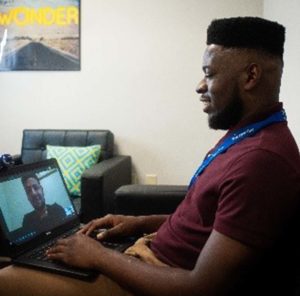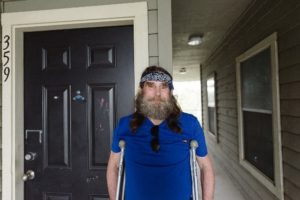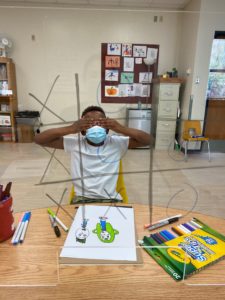TRANSPARENCIES
a monthly newsletter from Integral Care
a monthly newsletter from Integral Care

The Texas Legislature convenes in short order for a session that will present many challenges. With limited access to the Capitol, a significant budget shortfall and a continuing global pandemic, our elected leaders will be tested more this session than in any other during recent memory. In recent sessions, legislators have recognized the importance of access to mental health services to help people build health and wellbeing. It is promising that behavioral health service programs were excluded from the 5% reduction plan requiring certain state agencies and higher education institutions to reduce their budgets by 5% for the current biennium.
 Since the COVID-19 pandemic began, the State of Texas has expanded telehealth options and availability, a substantial innovation. With the encouragement of healthcare providers across the state, legislators will likely consider maintaining the reimbursement rates and telehealth flexibilities to best serve Texans statewide.
Since the COVID-19 pandemic began, the State of Texas has expanded telehealth options and availability, a substantial innovation. With the encouragement of healthcare providers across the state, legislators will likely consider maintaining the reimbursement rates and telehealth flexibilities to best serve Texans statewide.
Many of these telehealth platforms were made possible by the 1115 Transformation Waiver, prior to the pandemic. Thanks to the 1115 Waiver, Integral Care built local capacity to provide care for individuals with co-occurring disorders and improve access to services, quality of care, health outcomes and efficiency. With the current 1115 DSRIP program anticipated to end in October 2021, Texas must determine how to maintain the accomplishments and continue to make progress across healthcare systems for individuals with Serious Mental Illness (SMI).
The most promising option is authorizing implementation of a limited benefit package for individuals with SMI in order to maximize federal funds by refinancing individuals through a Certified Community Behavioral Health Clinic model of care and payment structure.
Our community has been supported through legislative action in past sessions, particularly in the areas of homelessness and our psychiatric state hospital system. In 2013, Senate Bill 58 created the Healthy Community Collaborative (HCC), a grant program to support ongoing recovery and housing stability for individuals experiencing homelessness with unmet behavioral health needs. HCC state funds allow us to support:
 ECHO to implement the Coordinated Assessment, the tool used to determine the type of housing that best matches an individual’s needs;
ECHO to implement the Coordinated Assessment, the tool used to determine the type of housing that best matches an individual’s needs;While initial legislation for HCC funding included local match of state funds and anticipated programs would be self-sustaining after seven years, current economic challenges have limited available resources to transition and sustain the gains that have been made through the HCC programs without an extension of the available years of state funding.
![ASH rendering [Texas Health and Human Services]](https://integralcare.org/wp-content/uploads/2021/01/ahs-300x151.jpg)
A final consideration for this session will be the continued redesign of the Austin State Hospital (ASH). Last session, Senate Bill 500 provided $165 million to construct the first phase. The redesign of ASH will improve access to quality mental health care and treatment across our community and neighboring service areas. Continued legislative investment this session in ASH, which needs an additional $120M for the second phase of the redesign, will strengthen and improve mental health care and overall well-being of Central Texans.
We look forward to continuing to work with our legislative delegation to strengthen access to services that support healthy living for everyone in our state.

David Evans
Chief Executive Officer
 School-Based Counseling in the Time of COVID-19
School-Based Counseling in the Time of COVID-19
The ongoing pandemic is exacting a heavy toll on the mental health of children and youth. Despite the current challenges of providing therapy to students, Integral Care’s school-based therapists are finding ways to still meet children and youth where they are and provide crucial support.
Funding from House Bill 13 supports our school-based counseling program, critical to supporting our children and youth in the time of COVID-19. Integral Care therapists currently see approximately 50% of children and youth in person (masked, 6 feet apart, with a plexiglass barrier between them). Therapists see the other 50% virtually.
Social distancing guidelines and virtual therapy do pose unique challenges for student and therapist. One such challenge involves play. Engaging in play is a technique that therapists use to connect with children. According to Program Manager Samantha Plevney, “We’ve found innovative ways to continue to play. In person, we can’t play Connect 4 anymore, but we can play tic-tac toe on the plexiglass barrier. And, while engagement with a child is easier in person, we’ve found creative ways to maintain kids’ attention and connect virtually.”
While online therapy for students has its drawbacks, Mrs. Plevney reports one big benefit to virtual sessions – increased engagement with the family. Getting parents, guardians and siblings all on campus at the same time for a family session can be difficult. It’s a different story when everyone’s at home.
Our school-based therapists aren’t only assisting students. We’ve provided 5 support groups for teachers during COVID-19 as well.
Integral Care offers school-based counseling on 37 campuses in Del Valle ISD, Pflugerville ISD, Manor ISD and East Austin College Prep Academy. We serve all grade levels to help ensure the children of Travis County have the skills and resources they need to thrive.
If a child or youth you know is experiencing loneliness, fear, anxiety or depression, free resources are available.

We will not let this pandemic stop us from bringing you another year of the longest running conference of its kind – focused on mental health, substance usedisorders, and intellectual and developmental disabilities in the African American community. We’re excited to host the 21st annual conference online this year.
The conference brings together individuals, families, faith leaders, health professionals, educators and advocates to explore health solutions, foster relationships, reduce stigma and increase access to health care. Professionals will find a variety of CEUs to boost knowledge and enhance professional development. The cost for professionals has been reduced to $75 this year. Individuals with lived experience and family member cost is $15. Community member cost is $25. Scholarships are available for those who cannot afford the cost.
We look forward to seeing you virtually February 3-5, and February 6 for the free Yes to Best Youth Summit (#Y2B), a mental health and wellness summit for the youth of ages 14-24. This summit brings together youth (particularly those of color) to discuss pertinent topics and challenges they may face. The summit also provides resources and practical tips to help them live their best lives.
Please spread the word about these events to your colleagues, clients, friends and family.
December 2020: Supporting Your Mental Health This Winter
November 2020: How do we rebuild health and well-being during a pandemic?
October 2020: With Collaboration Comes Innovation
September 2020: Success Stories of Recovery and Suicide Prevention
August 2020: A Back to School Season Like Never Before
July 2020: Minority Health Disparities & COVID-19
June 2020: Stronger Together
May 2020: Surviving and Thriving During Uncertain Times
April 2020: Persevering During COVID-19
March 2020: Collaborations and Initiatives to Improve Health for the IDD Population
February 2020:Solutions to Health and Health Care Disparities
January 2020: Sucicide Prevention a Local Effort
December 2019: A Year of Thriving Care & Collaboration
November 2019: Teamwork and Collaboration Impact Homelessness in Travis County
October 2019:Making Strides for World Mental Health
September 2019: Taking Steps to Recovery Support
August 2019: Working Together for Child & Youth Mental Health
July 2019: Legislative Wrap-Up – Some Bipartisan Wins for Healthcare
June 2019: Strengthening Access for Veterans and the Entire Military Family
May 2019: Women and Mental Health
April 2019: Legislative Session Status Report
March 2019: Making Opportunities for Recovery More Accessible
February 2019: Recovery is Possible
January 2019: Stronger Outcomes Through Collaboration
December 2018: Looking ahead to the 86th Texas Legislature
November 2018: How Tech is Changing the Face of Mental Health
October 2018: A Few Questions Could Help Save a Life
September 2018: Anyone Can Save a Life
August 2018: A Milestone Moment
July 2018: Equity in Mental Health Care for All
June 2018: Expanding Services for Veterans
May 2018: Your Mental Health Toolkit
April 2018: Time of Terror Calls for Increased Emotional Support
March 2018: Stopping the cycle of incarceration for individuals with mental illness
February 2018: Equity in mental healthcare for everyone
January 2018 : Improving Mental Health Through Partnership & Collaboration
December 2017: Strength Through Community
November 2017 : Healthy Lifestyles Improve Well-Being
October 2017 : National Child Health Day
September 2017 : Strengthening Families and Communities